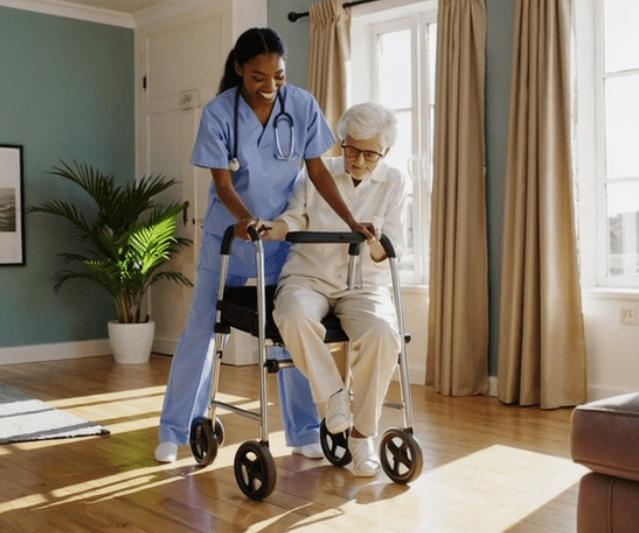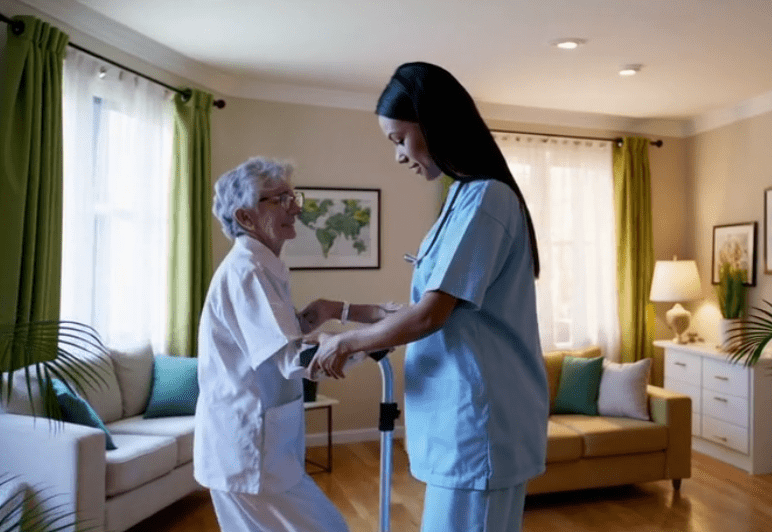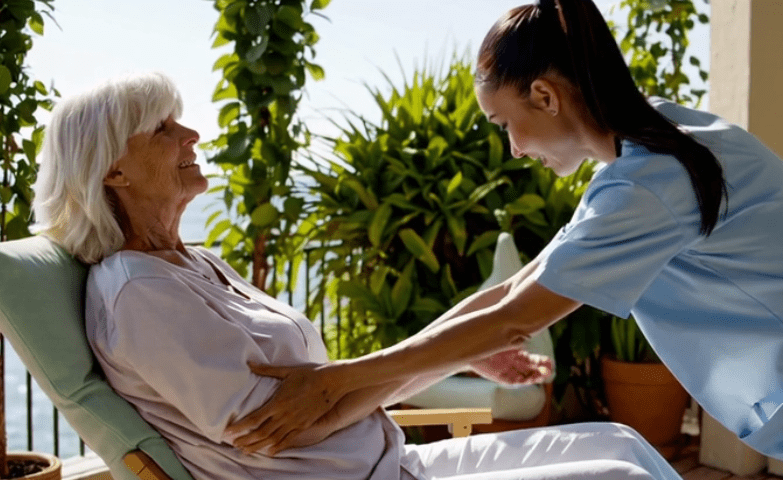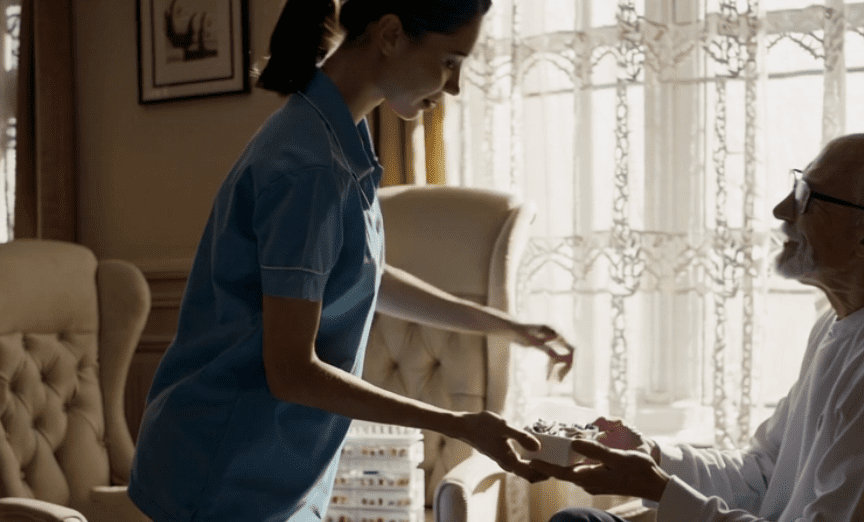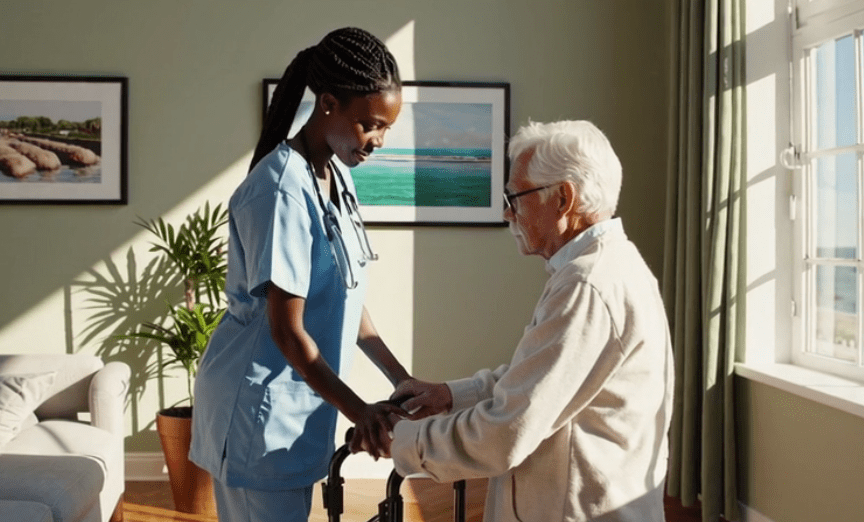Recovering from surgery can often feel like an uphill battle. The body needs time to heal, and postoperative discomfort can affect your mobility, mood, and daily routine. Fortunately, physical therapy (PT) is a proven way to support this healing process and significantly reduce the time you spend in post-surgery recovery. In recent years, in-home physical therapy has become an increasingly popular and accessible option. By bringing professional guidance directly to your doorstep, in-home PT offers a personalized and convenient way to rebuild strength, reduce pain, and prevent complications. In this blog post, we’ll explore the many benefits of incorporating physical therapy into your recovery plan after surgery, with an emphasis on how receiving these services at home can streamline your path back to health and independence.
1. Understanding the Challenges of Post-Surgical Recovery
After any type of surgical procedure—be it orthopedic, abdominal, cardiac, or otherwise—the body undergoes a massive healing process. Tissues that have been cut, manipulated, or otherwise stressed by surgery need time and proper support to repair themselves. During this post-surgical period, it’s common to experience pain, swelling, stiffness, and fatigue. These issues can limit your movements, interfere with sleep, and make even the simplest tasks feel daunting.
Moreover, the psychological aspect of surgery recovery shouldn’t be overlooked. Fear of reinjury, anxiety about your progress, and the mental toll of limited mobility can make your recovery more challenging. This is where physical therapy becomes crucial. By guiding you through targeted exercises, PT professionals help you feel more confident and comfortable as you gradually rebuild strength and mobility. Having a structured plan also reduces stress, allowing you to focus on healing instead of worrying about each step.
2. The Role of Physical Therapy in Surgical Recovery
Physical therapy is about more than just exercise. It’s a comprehensive approach that includes pain management, mobility exercises, education on proper movement patterns, and strategies to prevent secondary complications like stiffness, scar tissue buildup, and muscle weakness. In most cases, physical therapists work closely with the broader healthcare team—your surgeon, nurses, and possibly occupational therapists—to develop a plan that’s tailored to your specific surgery and recovery goals.
A key point is that physical therapy doesn’t just address your immediate post-surgical pain; it lays a foundation for long-term health. Effective PT can help prevent future injuries by improving body mechanics, posture, and strength. It encourages you to use muscles and joints in ways that promote healing rather than impede it. Over time, consistent therapy sessions can enhance flexibility and muscle balance, ensuring that you return to your daily activities without undue strain or risk of reinjury.
3. Why In-Home Physical Therapy?
Traditionally, patients would have to visit an outpatient clinic to receive physical therapy. However, multiple factors can make clinic visits challenging. Pain, fatigue, and limited mobility can make it difficult to drive or navigate public transportation. Weather conditions, traffic, and scheduling conflicts can further complicate your efforts to get the physical therapy you need.
In-home physical therapy resolves many of these issues by bringing the clinic to you. A licensed physical therapist arrives at your doorstep with the necessary equipment and knowledge to guide your recovery. This convenient and personalized approach eliminates the stress of travel and provides you with a familiar, comfortable environment in which to exercise. Being able to practice your rehabilitation techniques in the actual setting where you live your daily life (e.g., your bedroom, kitchen, or living room) also offers practical benefits, as the therapist can show you ergonomic adjustments and safe movement strategies specific to your home environment.
4. Reducing Pain Through Targeted Exercises and Techniques
One of the biggest benefits of physical therapy after surgery is its role in pain management. Surgical pain can be acute and intense, but it can also become chronic if not addressed properly. Physical therapists employ a range of techniques—such as manual therapy, stretching, strengthening exercises, heat or cold therapy, and even specialized equipment like electrical stimulation devices—to help reduce your discomfort.
In-home physical therapy allows your therapist to see how you’re moving around your own space. They can pinpoint everyday motions or postures that might be contributing to your pain. From there, your therapist will teach you safer ways to move, recommend assistive devices if needed, and guide you through gentle exercises that help alleviate pain without causing undue strain. Over time, these targeted strategies strengthen the muscles supporting your surgical area, enhance blood flow to promote healing, and help you better manage your discomfort.
5. Improving Mobility and Range of Motion
Loss of mobility is a common challenge after surgery. Whether it’s limited knee flexion after a knee replacement or reduced shoulder rotation after rotator cuff surgery, restricted range of motion can make your daily tasks incredibly challenging. Early and consistent physical therapy addresses these issues head-on.
Through a progressive exercise program, your in-home physical therapist will introduce gentle stretches and mobility exercises that help restore normal movement patterns. Initially, these might be as simple as non-weight-bearing motions or assisted movements. As your body heals, the exercises become more challenging, gradually reintroducing weight-bearing and resistance to build strength. By working consistently on range of motion, you’ll improve your ability to perform daily activities—like bending down, climbing stairs, or lifting objects—much faster than if you attempted to rehab on your own.
6. Preventing Complications and Setbacks
Post-surgical complications such as blood clots, infections, muscle atrophy, and joint stiffness can significantly delay your return to normal life. A structured in-home PT program helps you stay on top of these risks. Therapists often emphasize gentle but consistent movement in the early stages of recovery to maintain blood flow, reduce swelling, and prevent clot formation. They’ll also teach you how to properly care for your surgical site to minimize infection risks.
Additionally, regular PT sessions allow for timely identification of potential setbacks. If your therapist notices signs of fluid accumulation, signs of infection, or poor healing, they can alert your surgeon or nurse before the situation escalates. This vigilance not only speeds up your recovery but can also prevent further medical complications.
7. Exercises Tailored to Your Unique Needs
No two surgeries are exactly alike—even patients who undergo the same type of procedure can have vastly different healing timelines, pain thresholds, and overall health statuses. Physical therapists specialize in creating individualized exercise plans that account for these differences. During your first few sessions, your therapist will evaluate your strength, range of motion, pain levels, and any specific limitations or precautions set by your surgeon.
From there, they’ll design an evolving exercise routine that adapts as you progress. Each session builds on the last, ensuring that you’re continually challenged without being pushed too far beyond your limits. This dynamic, customized approach ensures that you maximize the benefits of physical therapy and avoid reinjury by overexerting yourself prematurely. In-home PT further enhances this customization because your therapist has direct insight into the specific movements and tasks you perform every day within your living space.
8. Emotional and Psychological Support
Surgery and the subsequent recovery can be emotionally taxing. Loss of independence, uncertainty about your body’s capabilities, and disruptions to your social life or work routine can negatively impact your mental health. In-home physical therapy adds a personal touch that can be highly encouraging. Your physical therapist is not just a healthcare provider but also a coach who celebrates your milestones and helps you cope with setbacks.
Knowing that a supportive professional will arrive at your home on a regular schedule provides structure and routine, which can be immensely beneficial for mental well-being. They can also recommend coping strategies or relaxation techniques—like deep breathing, gentle yoga postures, or guided imagery—to help manage pain, anxiety, or stress. A better emotional state often translates to faster physical recovery because it reduces the mental barriers that can impede progress.
9. Convenience and Accessibility
For many individuals, especially seniors or those with limited transportation options, one of the greatest barriers to effective post-surgical rehabilitation is simply making it to appointments. Traffic, scheduling constraints, and the physical challenges of getting in and out of a car can discourage consistent attendance at outpatient PT sessions. In-home physical therapy eliminates these concerns. You can schedule sessions at times that work best for you, and you’ll never have to worry about how you’ll get to the clinic or who will drive you.
This convenience also extends to caregivers and family members. Loved ones who are assisting you can learn directly from the physical therapist about safe transfer techniques, how to help you with exercises, or ways to modify the home to support your recovery. The result is a comprehensive support system right where you need it most—at home.
10. Conclusion: Your Path to a Faster, Healthier Recovery
Physical therapy is an essential part of many post-surgical recovery plans, offering a structured pathway to rebuild strength, reduce pain, regain mobility, and prevent complications. While traditional outpatient therapy has its place, in-home physical therapy is an increasingly popular choice for patients who value convenience, personalized care, and one-on-one attention in a comfortable environment. By tailoring exercises to your unique needs and keeping a watchful eye on potential risks, a home-based PT program can help you return to your routine faster and with greater confidence.
If you or a loved one is approaching surgery—or currently navigating the postoperative phase—consider discussing the option of in-home physical therapy with your healthcare provider. It can be a pivotal part of a well-rounded recovery strategy that prioritizes not just the healing of your body but also your overall well-being. With professional guidance and consistent effort, you can look forward to a smoother, more efficient recovery, and regain the independence and mobility you need to enjoy life to the fullest.


